|
In my experience, I often hear the same refrain from both parents and students when looking at a college or university located in an urban setting: "What about safety? The campus is in a bad part of the city, right?" This concern is understandable, especially considering that many schools in cities don't feature a traditional academic quad, for example. Yet, too often these same families make incorrect assumptions about suburban or rural campuses being safer because of their location. Moreover, they focus on crimes such as muggings and theft, without considering the statistics on sexual assault, hate crimes, or drug and alcohol violations.
So what can students and their adults do to get a more accurate idea of what kinds of crime occur on a campus? This is where The Clery Act comes into play. Signed into law in 1990, The Clery Act is a federal statute mandates that every college and university receiving federal financial aid must collect and disclose crime statistics on campus. Every campus must issue an annual security report, keep a crime log, and must warn the community when the following crimes occur on campus: - murder (including manslaughter) - sex offenses - robbery - burglary - arrest - arson -motor vehicle theft - liquor-law and drug-related violations -weapons possessions - hate crimes Where can you find a school's Clery Report? The Federal Student Aid website is a great place to start, since they allow you to search Clery Act Reports by year and by school. Here's the website: https://studentaid.gov/data-center/school/clery-act-reports . Currently, the most recent year for Clery Act Reports available is 2020. Examples of schools with violations in 2020 include Baylor University and University of California Berkley. Another good idea is to set a Google Alert for a particular college or university. That way, you will be notified about any events that occur on campus, including crimes. To set up a Google Alert, follow the instructions outlined here: https://support.google.com/websearch/answer/4815696?hl=en . Finally, you may be able to read a particular school's most recent Clery Act Report somewhere on their website. Of course, some schools make it easier to locate than others, so I recommend using the "Search" function and typing in the word "Clery" to see what you can find. While we all want our students to be safe at their higher education institution, it's important to have everyone be aware of what kinds of crimes occur on a campus (and how frequently they happen there). Use the above tools to inform yourself and your family - knowledge is power!
0 Comments
With the state of Massachusetts officially dropping mask mandates and allowing full capacity at restaurants and sports venues again, A+ College Consulting is thrilled to be able to see students in person again for the summer of 2021!!! I've missed in-person session, and I'm so happy to be able to interact with young people in person again. That said, I'm still in an elevated risk group, as are my other household members (especially my now 85 year-old mom who lives with me). Because of this, A+ College Consulting is offering in-person sessions to those who follow the following protocol:
- Anyone interested in meeting in person with me must scan and email me a copy of their proof of vaccination card indicating that the person has either received both doses of the Pfizer or Moderna vaccines, or the one-shot Johnson & Johnson vaccine (I'm happy to provide a copy of my full vaccination card upon request). A copy of the vaccination card will be kept on-file in the student's folder. - All in-person sessions will be held outdoors on the front porch of my residence. Please dress accordingly!!! If the weather is particularly bad (think blustery rain), A+ College Consulting reserves the right to hold the particular session via Zoom. - All students must bring a fully charged laptop with them to the session (I cannot provide loaner equipment at this time), as well as any other notebooks, pens, etc. that the student may need for note-taking. - Disposable masks are available and may be provided to clients and visitors upon request. Hand sanitizer is available upon request, as well. - Please note that bathrooms are not currently available for student/client use. Stay tuned - I'm hoping to be able to resume bathroom access sometime this summer. - All chairs/surfaces that the student/visitor touches will be wiped down with Lysol Disinfecting Wipes after each session and before the next student/client session. - All students/clients understand that they assume all risks associated with meeting someone outside of their "pod" in person unmasked with less than 6 feet between us. - A+ College Consulting reserves the right to go back to offering entirely on-line Zoom session only at any time. Many thanks to those who inquired about when I will see students in person again, and thank you all for your understanding, patience, and cooperation as A+ College Consulting moves forward into the "new normal!" Dear High School Seniors,
T.S. Eliot famously wrote that April is the cruelest month. Personally, I think it's March. You busted your tail last fall to do well in school and to get all of those college applications submitted, and you've spent months now waiting to hear back from your schools. And the time has finally come: March, the month when regular admission decision letters drop (traditionally - of course, since the Department of Justice sued the National Association for College Admission Counseling and forced the organization to withdraw important clauses regarding ethical admission practices, we are now seeing a "free-for-all" where the Ivy League decided this year to release their decision on or around April 6. That means students have less than a month to make their final decision - FYI, just because Harvard et.al. decided to extend their deposit deadline to May 6 doesn't mean that the remaining thousands of colleges in the U.S. can extend their deadlines, too! In other words, the Ivy League schools have, yet again, made a decision that benefits them instead of students at large). So get ready, students - buckle your seatbelts because this month is going to be quite a ride! What do I mean by that? I mean that, in addition to the nervous energy you may experience every day when you check your admission portals online or the snail mail arriving to your home, you may also experience the dizzying highs of elation when you get that long-awaited "YES, you're admitted," as well as the abject lows of heartbreak when you read those words "We are unable to offer you admission at this time." And, as an adolescent, everything feels amplified. Rejection may or may not be in the cards for you this March, but, no matter what happens, I truly wish all high seniors to remember one very important thing: college admission is NOT a meritocracy. Merriam-Webster defines "meritocracy" as the following: "a system, organization, or society in which people are chosen and moved into positions of success, power, and influence on the basis of their demonstrated abilities and merit." Ok, but what does that have to do with college admissions? My answer is EVERYTHING! Here's the thing: the college admission system in the U.S. has never been about acknowledging and rewarding hard work and excellence. While the higher education system has grown and transformed over the centuries it has been in existence in the U.S., it just isn't designed to do this. How do I know? Because I've seen it happen over and over again, and it has certainly happened to me! Students who appear almost inhuman - they have perfect GPAs in the most rigorous curriculum with 1600s on their SATs and incredible accomplishments by the time they are 17 years old, accomplishments that some adults don't achieve EVER in their lifetime - are waitlisted and/or denied by schools EVERY YEAR. Did they do everything in their power to be an amazing candidate? Of course! Would they find success at that college/university? I have no doubt. But they don't get offered admission because IT'S NOT ABOUT THE STUDENT!!! Seriously, seniors, it's not about you! So what IS it about? It's about complicated, sometimes mundane, sometimes seemingly silly institutional priorities that you have ZERO control over. Yes, that's right. You could have done absolutely everything "right" since you learned how to walk and you may still not be offered admission to "brand name" schools because the college admission system isn't about who deserves to go to their school. It's just not fair, and it never was meant to be fair. It's about enrollment managers hedging their bets on which students will be "the most likely" to send in their deposit and actually show up in the fall (that's called "yield protection"). It's about schools making sure that they can brag about their incoming first-year class being made up of X amount of students representing X states and X countries. It's about finding that academically competitive tuba player to be in your school's marching band because the current college senior who fills that role is graduating in the spring. Sometimes it's about raising a school's ranking in the U.S. News and World Report. Other times, it's just a lack of space - admission officers have to turn away students who would be wonderful additions to their campus community because there just aren't enough space available in that incoming class. And sometimes it's truly just plain luck. But my point is that it's NOT YOU! You, my dear seniors, did nothing wrong! You are amazing human beings just as you are. SO please know that, if you don't get the answer that you had hoped for from an admission office, it's truly not your fault. You did the best you could during an incredibly stressful and often scary time, and I am proud of you. AND, if you created a balanced list with likely and target schools in addition to those reaches, chances are that you have choices awaiting you when it comes to where you will begin your college career. Try to see this as an opportunity to reframe your point of view: instead of feeling dejected about those denial letters, focus on those acceptance letters! Get excited about your future and channel that energy into making the best possible decision for yourself! You want to be sending in your deposit by May 1st to a school that thinks you're awesome and wants to welcome you into its community with open arms. Because those schools are out there, just waiting for your wonderful self to say "YES!" to them! Love, Maruta Applying to college is stressful enough, and this year's pandemic has spawned even more confusion and worry for parents and high school students alike. This edition of "Ask a College Counselor" is intended to provide useful information to ease some of the prevalent anxiety and to correct some of the misinformation currently circulating about college admissions!
Question: Current high school seniors applying to colleges are going to have a harder time getting admitted since all of those kids from the previous grade deferred and will now be taking up space in the Class of 2025, right? Answer: NO!!!!! That's not how it works!!! Unfortunately, this is such a common belief this fall, but it's based on incomplete information and speculation that's gleaned from news headlines without digging deeper into the context. First of all, admission offices are complex and feature staff that have different roles in the higher ed admission process. One of the most important people in an admission office is the Enrollment Manager, whose job is to track and analyze data on things like student inquiries, application numbers, admission offers, yield, and retention. The Enrollment Manager is the person who looks at historical admission data, and makes predictions on the number of students who will likely apply, accept admission offers, and actually show up on campus that fall (because not all students who send in deposits actually matriculate - it's a phenomenon called "summer melt"). The Enrollment Manager usually has a pretty good idea of how many students the school can accommodate when it comes to deferral requests, and schools don't automatically allow any student who wants to take a year off to do so with a guaranteed place in the next class. Enrollment Managers know the numbers: they know how many student deferrals are too many, so any competent Enrollment Manager would NOT allow so many students to defer that it would significantly throw off admission numbers for the next class. So while yes, more students on the whole nationally decided to take a year off instead of becoming college first years during Fall 2020, this is not going to dramatically affect how many current seniors are offered college admission. Moreover, the latest data released from the Common Application indicates that ALL college application numbers are DOWN from last year, meaning that less students across the U.S. and internationally are applying to colleges and universities this cycle. THAT is data that suggests that it will actually be EASIER to be accepted into college this cycle than it was last year because more schools are looking for more bodies to put into their classroom chairs. Obviously, this doesn't apply to the hyper-selective schools like Harvard, but still - overall, the current trend in college admission is seeing LESS total applications to all U.S. schools than last year at this time. Question: But what about standardized test scores?? I registered 6 times in 2020 to take the SAT but every testing date eventually was cancelled, and I can't afford to travel to a different state to take the test. Aren't I going to be at a major disadvantage in the applicant pool? Answer: Absolutely NOT!!! Over 1,600 colleges in the U.S. currently are test-optional due to COID-19 (you may read more about this trend here). And these schools mean it! When they say "test-optional," it is TRULY OPTIONAL to send in your test scores if you're lucky enough to have taken a standardized test this year or in the past. Admission officers are humans, too, and they have been living in this pandemic right alongside the rest of us. They understand that standardized testing has been a hot mess this year, and they know that it has been virtually impossible for any student, save for the most privileged, to be able to take the SAT or ACT this year. When they say "optional" in this case, they actually mean it! So please, please, please know that your application will be reviewed using other criteria (such as your essay responses, your course rigor and grades, your extra curricular activities, your recommendations, etc.). And yes, there are still some schools out there insisting on standardized scores to apply (I'm looking at you, Florida universities!). But their application numbers are plummeting right now, so we will see how long they will continue to insist on something that is out of reach for most students currently. Please don't risk your health or your family's health by trying to take the SAT or ACT before it's safe to do so!!! Question: My child is a junior in high school, and we haven't started to do ANYTHING related to college admission! Are we super-behind in the process?? Answer: NO!!! You're all 100% fine!!! It's typical for high school counseling departments to have their "college application kickoff" events in the January of the student's junior year (in other words, the second half of junior year, after winter break). And that's really a great time - students can begin researching schools online during this time and start participating in virtual open houses, online information sessions, and virtual campus tours (in a non-pandemic year, students would also be planning in-person campus visits during February and April vacation weeks). I recommend that students have a solid working college application school list by the end of junior year, but that's flexible, too. Given all of this, you're not behind in anything!!! So please enjoy the holiday season, and let's all celebrate the end of this year before our work resumes in January! With the pandemic continuing to affect our lives, it's understandable that families with high school students - especially seniors - have many questions about this year's college admission application process. So, without further ado, here's a new round of "Ask a College Counselor" questions and answers specific to the 2020-2021 application cycle!
Question: Applying to college during a pandemic - what's different this year? Should I/my high school senior consider deferring this whole process for a year? Answer: It’s definitely going to be a weird cycle for everyone involved! In terms of the greatest differences, I’d say that the biggest change is the massive amount of schools that are going test-optional for this cycle. Personally, I am absolutely *thrilled* by this development, since I have never been a fan of standardized testing, and I truly hope that many of these institutions KEEP this test-optional policy for future application cycles. That said, I know that some schools have already announced that their test-optional policy will only be in effect THIS CYCLE, which is one reason why it’s not a good idea to defer. Another pandemic change is the increased accessibility via the web of many more admission officers. Since they will not be traveling this fall per usual, they are very eager to engage with high school seniors via virtual info. sessions, and one-on-one Zoom meetings. I think that this is great, since students don’t have to necessarily compete for the attention of an admission officer in a cafeteria, and can engage directly with admission officers in a more meaningful way (which only helps in the application process). There’s also a new COVID essay to the Common App, but it’s not required (and, contrary to the usual practice of assuming that “if it’s optional, it’s actually required!”, this essay is truly optional). In my opinion, I don’t think it’s a good idea to defer applying this cycle for a whole host of reasons (for example, pandemic or not, I always advise my students who want to take a gap year to apply to schools while a senior in high school since the process is so much harder to do when the student is NOT in high school - one can always choose to defer after being accepted). Specific to THIS year, I think it will be a positive year for seniors, since admission officers will likely be extra lenient and flexible this cycle due to the pandemic. Since literally everyone in the world has been affected by the pandemic, the admission officers are going to HAVE to be more flexible and will HAVE to truly take holistic approaches to evaluating candidates (I have seen schools pay lip service to the idea of a holistic evaluation when they actually rely mostly on numbers at least for an initial screening of applicants). After all, Admission Committees will likely have NO testing to use, and they will need to reformulate their GPA calculations to account for the predominant pass/fail or “everyone gets an A” grading policy across the nation from this spring. Question: Since so many schools have gone test-optional for this cycle, should I/my student take the SAT/ACT if there's a chance to do so this fall? Answer: This is a decision that only the family can make, and it depends on everyone’s health situation. In my opinion, I would rather have my students apply test-optional and NOT take either exam, since I’m very concerned about the safety of testing centers (for ex. there were students in Oklahoma who took the ACT in July and tested positive for COVID after that). No test is worth risking a student’s health! However, that’s my viewpoint, and I completely respect and will support a family’s decision on whether or not a student will take a standardized exam. Question: It seemed like there were colleges and universities closing their doors even BEFORE the pandemic started. What about now? How can a family know that their high school senior is applying to a school that is financially stable? Answer: While the advent of COVID-19 has certainly increased the financial pressure felt by many higher education institutions, most schools with robust endowments will likely survive the current pandemic. Will there be more colleges and universities either closing forever or merging with wealthier institutions? Yes, I have no doubt that this will continue happening, since I see the pandemic as foregrounding and accelerating existing problems at these institutions. This is why I encourage families to check out the financial health "grades" for colleges and universities that Forbes Magazine publishes every year (while the 2020 edition is not out yet, the 2019 grades should still prove useful). I also find it helpful to find out a school's Moody Rating to get a sense of its financial health (note that you will need to set up a free account in order to access their information). Have a question about this year's college admission application process? Send it to me, Dr. Vitols, at [email protected]! As the current pandemic continues to plague the U.S., COVID-19 is changing the college admission application process in multiple ways. Admissions officers won’t be traveling to high schools across the country to meet with students in person. Since the vast majority of rising seniors have not been able to take the SAT or the ACT this year, an unprecedented number of colleges and universities have gone test-optional (at least for this current admission cycle). And now, the Common Application has added a pandemic-specific question to its form.
What does this mean for students planning on applying to colleges and universities this fall? The Common Application decided to create a specific spot in its online form in the Additional Information section where students are given 250 words (maximum) to share any specific information they wish about how the pandemic has affected their lives. The prompt reads as follows: “Community disruptions such as COVID-19 and natural disasters can have deep and long-lasting impacts. If you need it, this space is yours to describe those impacts. Colleges care about the effects on your health and well-being, safety, family circumstances, future plans, and education, including access to reliable technology and quiet study spaces.
Since the Common Application announced this new “COVID question” in May, I’ve spent much time attending webinars and reading opinions on the pros and cons of students answering this prompt, and some best practices on how to approach this section. Most information that I’ve come across appears to fall into two camps: the “Yes! Always answer every optional question!” group and the “It Depends” side (obviously, the reality is that many people have varying opinions on this situation, and fall somewhere on a scale rather than embracing a binary). My thoughts are closer to the “It Depends” voices, since every applicant is unique with specific circumstances that should be individually assessed and addressed. That said, the best advice I’ve come across is from The College Essay Guy himself, Ethan Sawyer. His blog entry entitled “How to Write About Coronavirus/COVID-19 In Your College Essay & Application” details a useful step-by-step guide on how a student may approach this specific prompt. It’s helpful precisely because it begins by asking the high school senior a series of questions to determine whether or not the student should even use this section. Again, what is appropriate for one young adult may not make sense for her peer, and this is the case with EVERYTHING in the college admission process (it’s one of the reasons why parents often marvel at how one child ends up attending a large research university for their undergraduate education, while another sibling thrives in a small liberal arts setting). Next, if the student has determined that answering this prompt is appropriate for her, then Sawyer provides several options and ideas for how a senior may formulate a response. From my perspective, I strongly encourage students who choose to write about their COVID-19 experience to use the specific 250-word Coronavirus section to do so in a clear and straightforward manner, instead of writing a full essay about it in either the “Additional Information” section (one of the few truly “optional” spaces on any common application) or the main 650-word personal statement area. Each student is so much more than how he/she/they have responded to the pandemic, so save the other spaces in the Common Application for showcasing the student’s individuality and uniqueness. Nevertheless, if you feel strongly that a student must use every possible opportunity to share information about him/her/themselves (including the new COVID-19 essay space), then Brad Schiller, CEO of Prompt (a company that focuses on helping students become better writers and provides extensive college essay writing support), offers helpful advice. According to Schiller, students should use this section to prove that they will be successful in college and beyond by demonstrating 5 qualities: drive/grit, intellectual curiosity, taking initiative, contributing to a community, and a diversity of experiences. He recommends taking one of two approaches: writing an essay about personal circumstances and how students met their new challenges head-on (i.e., experienced hardships and what they did to improve their situation), OR writing an essay about one’s personal growth (i.e., how did the pandemic spark a new growth in intellectual curiosity, for example). For all COVID essay answers, Schiller reminds students to explicitly demonstrate how they used their pandemic time and to share how they are engaging with or perceiving themselves or the world differently. The bottom line? Just like with everything in a college admission application process, it all depends on the individual student. There is no magic bullet or secret formula to crafting a great application. Students and families should discuss whether or not responding to the COVID essay prompt is the right choice for them, and then trust that decision. And don’t be afraid to reach out for advice from your school counselors, admission officers, or independent educational consultants! Just like you are not alone in the experience of this pandemic, you’re not alone in your journey to college. Life is so challenging right now, and I know that parents and their graduating high school seniors feel extremely vulnerable. Traditional rights of passage like in-person graduation ceremonies are gone, usual support systems have been drastically altered, and it may feel like we are all floating around in this amorphous limbo that’s only filled with questions and anxiety. Financial situations have changed, so many carefully-made plans have been cancelled. Worst of all, no one has answers about the future. Faced with this kind of a situation, it’s completely understandable for many people to do their best to regain some sense of control over their lives. One way that parents and their graduating seniors are attempting to do just that is by seriously considering having these students take gap years, believing that delaying higher education by one year will be the solution to the current serious obstacles facing higher ed. Unfortunately, too many people don’t realize that taking a gap year is NOT the solution to the problems that they face, and that gapping without carefully thinking through this decision could result in many more complications and problems.
What’s so wrong with taking a gap year? Absolutely nothing! To be clear, I’m a fan of gap years, since they may encourage independence, more maturity, and a greater appreciation of education. Students who take gap years often begin their college careers with a deeper sense of purpose and clarity, and the motivation to make the most out of their higher ed. opportunity that they demonstrate frequently make them excellent role models for their peers. HOWEVER, the COVID 19 pandemic has permanently changed our world, and gap year experiences are no exceptions. When I read articles suggesting that graduating seniors deal with today’s uncertainty by taking a gap year (like this one https://www.forbes.com/sites/christopherrim/2020/04/28/thinking-about-taking-a-gap-year-due-to-covid-19-heres-how-to-make-the-most-of-it/#5ca92d7e111c ), I worry that too many families will make this decision from an uninformed place of fear, and that students could pay a high price for this kind of impulsiveness. What’s the big deal? First, incoming first-years MUST ASK their college or university’s admission office for permission to defer. This means that the school in question will save a spot in the Class of 2025 for the students, and this student will not need to reapply for admission, if this deferral request is approved. NOT ALL DEFERRAL REQUESTS ARE APPROVED!!!! Just because you ask for one doesn’t mean that the school has to approve your request. All admission offices have a maximum number of deferral requests that they are able to approve without having the school suffer budget problems, housing issues, and other complications. Many schools have already reached their maximum, so don’t assume that your request will be automatically approved. Moreover, the school could approve the request but let you know that you will need to reapply for financial aid and that your current award will not wait for you. The worst case scenario here is that the school denies your deferral request, and instructs you that, if you wish to take a gap year, you will have to reapply to the school to be considered for the Class of 2025. Think about that: you just completed this long, exhausting, rigorous, and complicated process - does anyone in your family want to go through this AGAIN??? Next, gap year experiences before COVID 19 may have included everything from getting a job (and saving money for college), traveling abroad, and taking courses from a different university. The pandemic has made all of these things that much more difficult. As millions of Americans continue to file for unemployment, finding A JOB for recent high school graduates will be very challenging, let alone one that keeps the student relatively safe AND provides some kind of meaningful experience. Border remain closed so free-form traveling abroad will likely not be an option for some time, and abroad programs are severely limiting what small options are still available (making these aboard programs even more competitive). Meanwhile, many colleges and universities in the U.S. are restricting the amount of college credit that they will accept to transfer (for a variety of reasons beyond the scope of this blog post). If your student wants to take a gap year now, what is she going to do? How will she spend her time? There’s also the emotional/social/developmental side of your student to consider. What happens if your student takes a gap year but her friends choose to go to college. How will your student make new friends during this gap year? Will she continue living with your family? Is that going to be OK? Will everyone be able to get along (parents and siblings included here)? Is the parent/child dynamic in a good place? How is the mental health situation here? Will your student be able to develop the kind of independent living skills that college first years have to learn? How will your student grow in autonomy? How will parents treat their new young adult? And then there are the finances. How will taking gap year affect family finances? Is a gap year going to delay a parent’s retirement even more? Will your family’s financial situation be better or worse a year from now? How will this affect paying for college? As you can see, one shouldn’t make the decision to take a gap year lightly. My interactions with students over the years have shown me that the best gap year experiences are the ones where students have made detailed plans about what specific goals they want to achieve and what skills they want to learn over a concrete period of time, and these same students have the ability to be flexible and amend their plans when life inevitably changes. If your family is seriously considering having your student take a gap year instead of matriculating at your chosen school, please consult the following trusted resources for more guidance on how best to plan for this: https://www.gapyearassociation.org/, https://www.gooverseas.com/gap-year/usa-fairs, and https://www.interimprograms.com/ . Finally, if you’re convinced that a gap year isn’t the right fit for you or your child right now, take heart. All is not lost if this fall college and university courses end up being online. Online learning should not be the purgatory it has been over the past few months - your professors will have more warning and time now to prepare their coursework digitally. They will have more timely support from their IT departments to improve the online learning experience, and, most importantly, they will have some online teaching experience under their belts (keep in mind that, when the pandemic shut schools down in March, some professors had never heard of Zoom before, let alone knew how to teach using that platform). Read this recent article published on slate.com for more ideas on how to change your mindset to make the most out of online learning: https://slate.com/technology/2020/05/online-college-fall-2020.html. Life as we know it will never be the same again, and that includes the college experience. Having a positive, growth mindset - one that is open to new opportunities even if they mean getting out of your comfort zone - will help everyone navigate this current challenge. Making rash, impulsive decisions from a place of fear, however, will likely lead only to more problems. Little did I know last month how prescient my call to get out of one’s comfort zone was going to be! In such a short, concentrated amount of time, our lives have been thrown upside down. This global pandemic knocked everyone out of their daily routines and into a bizarre new reality unlike any we have experienced in our lifetimes. By now, you’ve all read what feels like a gazillion e-mails about COVID 19, social distancing, and “flattening the curve;” everyone has heard that “we are all in this together” time and time again; and we know to wash our hands with soap for at least 20 seconds as much as possible (personally, I’m grateful for my stash of hand creams, since they are being used A LOT to keep my hands from becoming completely raw). In short, there is a TON of uncertainty right now, as well as uncertainty’s friends fear and anxiety.
Compounding contemporary feelings of unease is the timing. Could it be any worse, really? March was already going to be a stressful month for high school families, as regular decision college admission results were going to be released throughout the month, often bringing disappointing and/or heartbreaking news to hopeful high school seniors. Add to that the deep sense of sadness and frustration because these same students can’t hang out with their friends in person and will likely have their graduation ceremonies cancelled, and the situation becomes even more bleak. I truly wish I could give you all hugs right now! While I can’t offer information on when this pandemic will be over, I CAN provide my advice for high school students and their families during this challenging time. Please note that my suggestions are just that - my suggestions. They are meant to offer some helpful ideas and comfort - they are not replacements for talking to a professional mental health counselors. If you are concerned about your own or your loved one’s mental health, I urge you to call your Primary Care Physician to discuss identifying an area mental health professional, call the Substance Abuse and Mental Health Services Administration’s (SAMHSA) Disaster Distress Helpline at 800-985-5990, or check out the mental health resources at https://www.mentalhealthfirstaid.org/2020/03/how-to-bethedifference-for-people-with-mental-health-concerns-during-covid-19/ . For High School Seniors: $%^# this sucks! Yup, there’s no other way to phrase it. This was supposed to be YOUR time - time to celebrate you and your accomplishments, time to make more memories with your friends before you all head off in different directions in life, time for prom and graduation, and so much more. Instead, you’re stuck at home, frustrated and disappointed. And you have every right to be! This entire situation ISN’T fair, and it’s OK to be upset and worried. Please read this open letter to all high school seniors, written by a wonderful teacher in Louisiana here - I couldn’t have said this better! If you’re concerned that you won’t be able to make the best decision about where to submit your deposit, know that you still have time. While May 1st has been the traditional universal deposit deadline, some schools have already pushed their deposit deadline to June 1st to give students more time to deliberate. To check to see if your schools have extended their deposit deadlines, click here. In the meantime, use the resources that you have available (printed brochures and booklets that you collected on campus tours and from your guidance office, school websites that often offer virtual campus tours, social media admitted student chat rooms, college and university LinkedIn profiles, your counselors and mentors, etc.) to get the information that you need in order to make the right choice for you. Take comfort knowing that there are a ridiculous number of people all over the globe right now working *so hard* to figure out how to make your next steps not only possible, but awesome. That includes your high school administrators discussing how to help everyone graduate and get those final transcripts to schools, as well as government leaders reconsidering waiving or readjusting federal/state testing and graduation requirements. Whether you’re planning on starting college this fall or going overseas for a gap year, trust that the answers to your questions on how this is all going to work will come. It may take time and require your flexibility, but you will get through this and move on with your life! For High School Juniors: I know that many of you are freaking out (if not on the outside, definitely on the inside). You’re right there with the seniors, worrying about how this pandemic is going to affect your future college plans. I get it, and I want to reassure you that, while I may not be sure about the details yet, you will be OK! This is a GLOBAL phenomenon that we are all going through - that includes every other junior on the planet, as well as all college and university admission officers, the entire staff of the College Board, and everyone involved in any aspect of the college admission process. We all know that this is going to be a highly unusual admission cycle, and that’s OK! Accommodations are already being made - some universities have already decided to go test-optional for just this cycle (to read more about this, click here and here, and to see a list of schools that are already test-optional, click here ). For students wishing to follow the latest updates on standardized testing, be sure to regularly check the following websites for new information: for the ACT click here, for the SAT click here, and for the AP exams click here. Trust that you will NOT be penalized for living through a pandemic! Colleges and universities will take this context into account when reviewing your applications this fall, and it will ALL WORK OUT!!! In the meantime, you can do a surprising amount of research online! Take virtual campus tours, engage admission officers in online chats, sign up for college-related webinars, and ask current students and alumni questions about their experiences via LinkedIn and other social media outlets. While nothing replaces an in-person visit, you can learn a ton of helpful information from the comfort of your home, so that you will have narrowed your application list down and be very prepared to visit schools when that opportunity becomes available again. This is also a good time to use the internet to have a Plan B for your summer activity, in the event that the stay-at-home order is extended. Create a list of things that you could do from home that will still be meaningful for you (some jobs can be done online, if you’re looking to make money, while there are an increasing number of online courses students can take - including free MOOCs!). Also check out Coursera and EdX. It’s always better to have some options available to you just in case you need to revise your initial plans. For High School Sophomores and First Years: It may not feel like it now, but you’re the lucky ones. Why? Because you have time on your side. You really only should be focused on your high school careers right now, as well as staying healthy and safe. College isn’t even a blip on your radar screen (or, at least, it shouldn’t be). Use this time at home to explore subjects that you have been interested in, but never had the time to investigate - until now. Read a book you’ve been wanting to read for fun! Learn how to cook, so you can help out at home (same goes for learning how to clean your home correctly and how to safely do laundry). Plant a garden when the weather is better. Your imagination is your only limit! And, if you’re feeling helpless in the face of the pandemic, remember that you ARE contributing to society by just staying home and not hanging out with your friends! You can also do good by learning to sow masks, by organizing a fundraiser to help those in need right now, by writing cards to the aging adults living in nursing homes, by checking on your neighbors to see if you can help them (be sure to social distance and use gloves if you’re bringing them groceries, for example), by reconnecting online with relatives that you haven’t talked to in a while, and by doing so many other activities. Helping others is a wonderful way to feel better, because you know you’re making a HUGE difference in another person’s life! For Parents: Simply put, you’ve been tasked with the impossible: having to work from home (if you’re lucky enough to still have a job), home school your children, run a household, AND maintain calm during a period when everything has been thrown into disarray. Some of you have the additional stress of taking care of your aging parents, too. I know that you’re all feeling a tremendous amount of stress and pressure right now, so please remember to practice self-compassion. Breathe! You are only human, and you’re doing the best you possible can in this incredibly difficult situation. Take the advice of a wise local rabbi: lower expectations and clarify priorities. Don’t yell at your kids if they aren’t completing all of their homework assignments right now - this pandemic is challenging for them, too, albeit in different ways. Trust that your child’s teachers are doing everything in their power to help your child now, and they will bring your child up to speed whenever we are allowed to resume school again. Let that drive to be productive go! Your job is to listen to your kids, validate their feelings, and help them feel safe and secure. Talk to them honestly but in an age-appropriate way about what is going on and how to take concrete steps to stay safe (like the importance of washing hands thoroughly and for at least 20 seconds). Try to establish some kind of routine, since that structure will help everyone in the household feel more stable (you will feel better, too). Most of all, use this historic moment to teach your children how to be resilient in the face of obstacles. Model good coping skills to your kids - they are looking to you to see how you meet these challenges. We are ALL out of our comfort zones now, whether we want to be or not. Help your children learn that they will get through this, and come out stronger and better equipped to navigate the world when it’s time to leave the nest. For everyone, please stay join touch with your school counselors, teachers, and administrators to keep up-to-date on your latest school information. Keep a regular sleep and exercise schedule, and try to maintain a somewhat healthy diet (comfort food may be necessary, but make sure to have some vegetables, too, since your diet, sleep, and activity levels all influence your immune systems and right now you REALLY need to stay as healthy as possible to fight this pandemic). Look for the good! Make it a point for the family members at the end of the day to each share one positive thing that happened, showing appreciation and gratitude. Most of all, be kind - to yourself and to each other. While we may not know what tomorrow will bring, we DO know that we truly are in this together! Those of you who follow A+ College Consulting on Facebook know that I spent the last week of January this year touring colleges and universities in the Portland, Oregon area. While I was impressed by many things, including the incredible internship and experiential learning opportunities available to students in that area, I was most excited about one particular group of students that I met: the Hawaiians. At almost every one of the 7 colleges and universities that our college counselor group visited, I met students from Hawaii. Though each one had different academic and extracurricular interests, they all shared a common refrain: they were so happy that they chose to leave Hawaii to pursue their higher education on “the mainland.”
Let’s put this into context. Hawaii has 4 public universities, 5 private/non-profit universities, and 7 community colleges, not to mention special focus institutions. Clearly, Hawaiians have ample higher educational opportunities that don’t require flying 2,603 miles to Oregon or 2,471 miles to California. So, why did so many students choose to leave their homes to go such far distances for their undergraduate educations? I asked each Hawaiian I met this question and each one replied with the same answer: each one wanted to experience something new and different. These students wanted to be exposed to different environments, different people, and to different perspectives. And each student felt that he/she/they had grown so much because of this important choice, both intellectually and emotionally. Hearing these sentiments from this group of students filled my heart with joy, since they were willing to take a good risk because they knew that the reward would be priceless. I also loved witnessing the self-awareness of these students, since they truly understood a crucial part of the undergraduate experience - the incredible benefit students receive when they have to function in an environment where a variety of viewpoints, ideas, and ways of seeing and living in the world intersect and engage in a dialogue every day (inside and outside of a classroom). Moreover, these first years, sophomores, juniors, and seniors seemed self-confident and mature, since they knew how to help themselves (meaning, they knew what resources were available to them at the their home institutions, and they used these programs, places, and people to get the assistance that they needed). In other words, none of these young adults were having Mom or Dad intervene on their behalf to solve their problems. This last part particularly resonated with me, especially since I’ve been reading Julie Lythcott-Haims’ New York Times bestselling book How to Raise an Adult: Break Free of the Overparenting Trap and Prepare Your Kid For Success as part of the newly established virtual book club for members of the New England Association of College Admission Counseling. Though her book was published in 2015, Lythcott-Haims’ arguments about how “helicopter parents” have taken over every aspect of their child’s life are still extremely applicable five years later. Too many parents micro-manage and over-schedule their offspring to the point where the practice of them going to job interviews with their twenty-something child is becoming more and more commonplace! To me (and to Lythcott-Haims, a former Dean of Freshman and Undergraduate Advising at Stanford University), this hyper-involved parenting has disastrous consequences, creating generations of young adults without the resilience or even basic life skills to function without a parent hovering near by. To be clear, neither I nor Lythcott-Haims are advocating for child neglect or for minimal parenting! However, I support her calls for parents to encourage their children at each stage of development to learn appropriate levels of independence. So, I challenge both parents and their students, as you research universities or as you’re deciding where to send that college deposit: please consider going out of your comfort zone! For students, this may mean seriously considering attending a college in a different state that’s further away from your parents or exploring different academic programs that really interest you but may not be what your parents want you to study. For parents, this may look like allowing your child to make his/her/their own decision about where to go to college or what to study, trusting that you’ve raised a smart and capable human being who can make good choices. For both, this likely means knowing that making mistakes is part of life, and that one of the most important skills to have is the ability to learn from errors and to bounce back from failure. To that end, let’s all emulate those amazing students from Hawaii who left home to learn - a person grows the most when that comfort zone is left behind in favor of exploration and discovery! Now that the holidays are winding down and school vacation is over, it’s time to get back into a routine. While it may feel a little tough or overwhelming to return to homework and extra-curricular activities, every high school student can make it a point to add just ONE thing to their daily or weekly “to-do” list. Here are my recommendations:
Seniors: APPLY TO SCHOLARSHIPS. I know, I know, you’re still recovering from this college application business, and I understand. But trust me - you want to start researching external scholarships for college NOW (if you haven’t already been doing this). Why? Because there’s a lot of FREE money out there, so why leave it on the table? You’re going to be a college student soon and you’re going to need all of the money you can get! Moreover, think of it as good practice for college and beyond: you’ll get better at researching now as you use the web, your local library, and your guidance office to find matching scholarships. Furthermore, you’ll be able to practice your writing skills and get a resume into shape, both of which will serve you well in the future. Start with your local guidance office: they should have a list of school and/or city-specific scholarships, and and your counselors will continue to be excellent resources for help with writing essays and shaping resumes. Juniors: START YOUR COLLEGE RESEARCH NOW. The rubber hits the road now, folks. The one thing you can do now that will make a huge difference is to START YOUR COLLEGE RESEARCH NOW (yup, I wrote that twice in capital letters on purpose - this is so important!). It doesn’t matter how you choose to begin, just begin this month. Visit a local campus and take notes on what you like or don’t like. Start some self-reflection on what you’d like to get out of your college years. Don’t know where to begin? Check out the book College Match by Dr. Steven Antonoff for a wonderful workbook on jumpstarting your college research. This is the perfect time to get this going, so that you don’t feel pressure later this year to rush through this important process. Sophomores: PLAN YOUR SUMMER. Do you know what you’re going to do this summer? And I mean all of your summer, in specific activities? If you don’t know, then now is the time to start thinking and planning. If you do have an idea of what you will be doing this summer, does it include at least one college-related activity? Examples of college-related activities include (but are not limited to): being a counselor-in-training at your camp (it demonstrates leadership); having an actual paying job (wonderful if it’s in an industry that you’d like to explore further in college, but just having a paying, regular job is awesome, too); a paid or unpaid internship; shadowing a professional in a field in which you’re interested on a regular basis; taking a summer course (at a local community college or through a special college-affiliated program); volunteering regularly at one or multiple places; visiting a couple of college campuses to see what it’s like to be on rural, suburban, and urban schools; and so on. You don’t have to devote your entire summer to doing college-related things, but make sure that you’ve planned at least ONE college-related activity to do this summer. And right now is a great time to start planning! First-years: START SOME SELF-REFLECTION. Seriously. I know that most 14-yr-olds will look at me like I’m insane when I suggest this, but one of the most important things that will help any young person make good decisions about college (and life!) is knowing oneself. Self-awareness comes from self-reflection, and what better time to start practicing this skill than now? One way to start is writing in a journal every day. It doesn’t have to be for hours on end - just make it a goal to write one or two pages every day (no matter whether it’s in the morning, afternoon, or evening). Doesn’t matter what you write about, it just matters that you write. After one week of consistently keeping this journal, go back and read over what you’ve written in the last 7 days. Do you see any patterns emerging? Themes? This may lead to some insights about what’s on your mind, and can help you cultivate self-reflection. Hate writing? That’s ok! Try taking one of these free online personality tests, like 16personalities.com. Answer a series of questions and learn about your personality type. What do you think about your results? Do agree with all of it, some of it, or none of it? Why? Discuss your results with a parent or close friend. You may be surprised what you discover about yourself! If high school students did just one thing this January that is appropriate for their grade-level, they will all be well on their way to setting themselves up for success, both inside and outside of the classroom. |
AuthorMaruta Z. Vitols is an independent educational consultant in the metro-Boston area. When not helping students achieve their dreams, she enjoys hanging out with her dog, exploring new places with her husband, and doing yoga. Archives
April 2023
Categories |


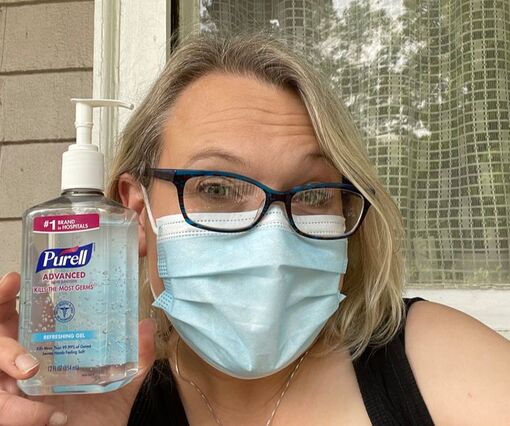

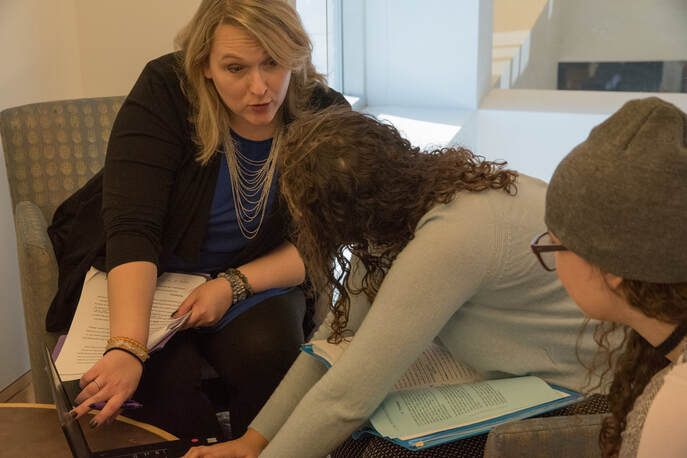

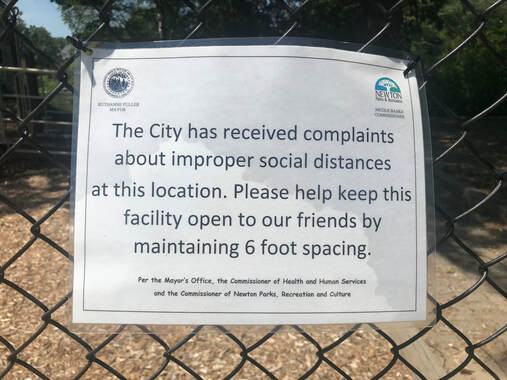
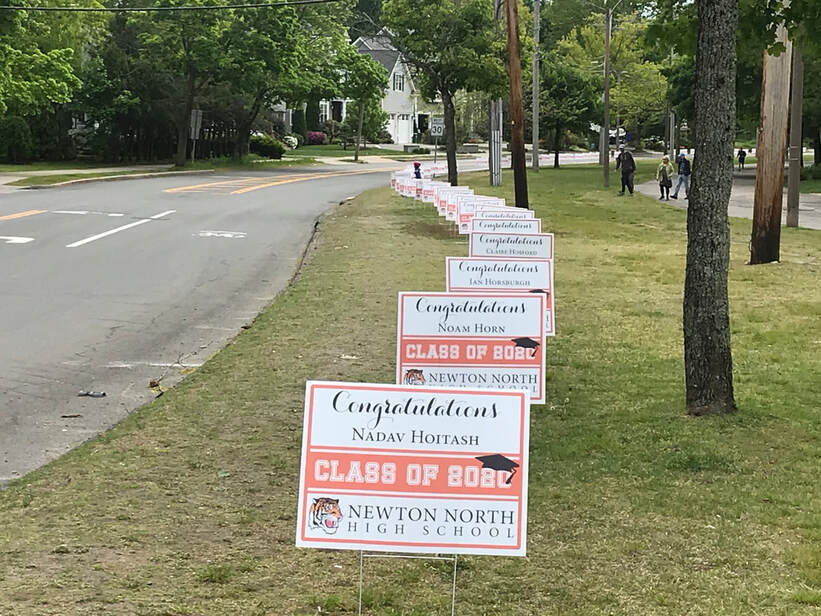


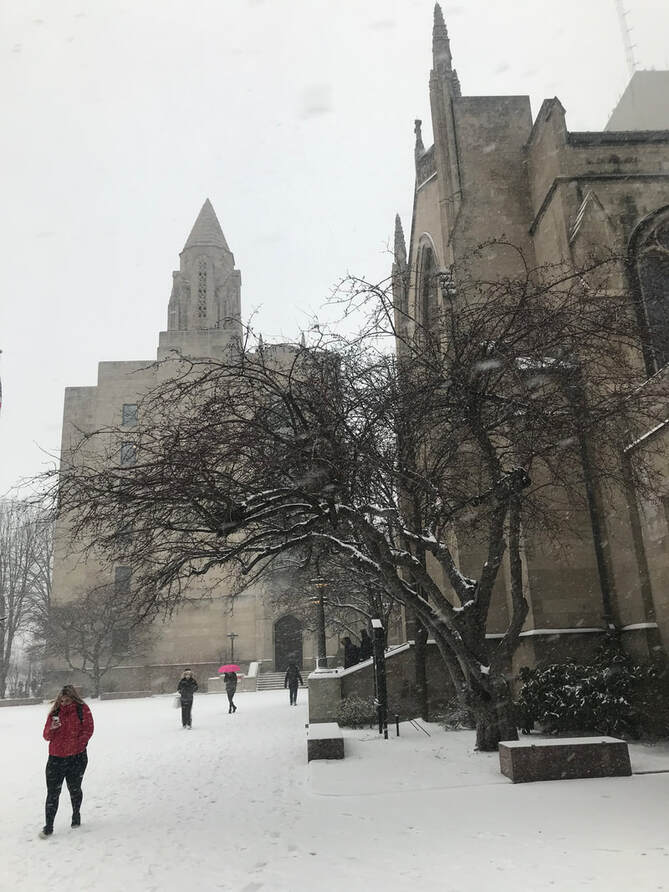
 RSS Feed
RSS Feed